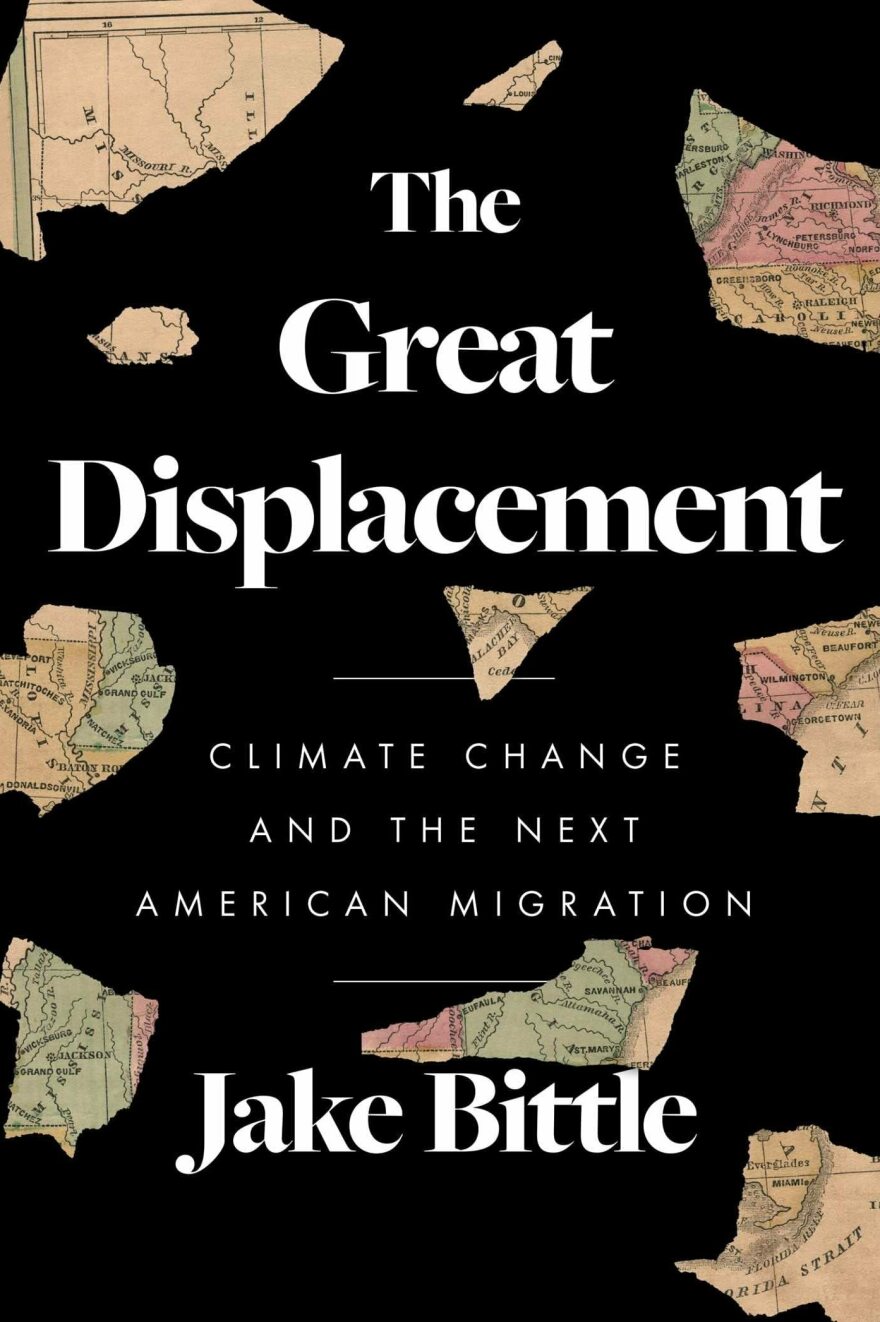"The climate crisis doesn't care if your state is red or blue," President Joe Biden said in his State of the Union address earlier this month. "It is an existential threat. We have an obligation to our children and grandchildren to confront it."
Scientists have been saying the same for decades, although that hasn't stopped the issue of climate change from becoming a political football, with self-styled skeptics waving away the data that show rising temperatures and sea levels, melting glaciers, and increasingly severe droughts.
Climate change is reshaping the U.S. in another way, as journalist Jake Bittle explains in his new book, The Great Displacement: "Each passing year brings disasters that disfigure new parts of the United States, and these disasters alter the course of human lives, pushing people from one place to another, destroying old communities and forcing new ones to emerge."
Bittle's book takes a look at several communities that have been affected by climate change, and how the lives of their residents — the ones who have survived — have been altered by extreme weather. The first section of the book focuses on the Florida Keys, "the first flock of canaries in the coal mine of climate change." Bittle profiles Patrick Garvey, who bought a neglected grove on Big Pine Key, and fixed it up into "a bona fide community resource" that grew fruits rare in the continental U.S.: longans, jackfruits, soursops.
Then came Hurricane Irma. Patrick and some friends decided to stay on the island during the 2017 storm, and ended up sheltering at a nearby school. They survived — a dozen people in the Keys didn't — but the grove wasn't as lucky. When Patrick returned after the storm passed, he found "tree stumps scattered across the grass at random intervals, wood and metal strewn around like bird feed."
Patrick's story is a harrowing one, and although he was fortunate to survive Irma alive, Bittle strikes a pessimistic note about the future of the Keys' ability to sustain human life. "Many of the islands in the archipelago, perhaps all of them, could go underwater altogether by the end of this century," he writes. "More so than almost any other place in the United States, they are doomed." Some Keys residents decided to stay after Irma; others, unable to bear the thought of going through that kind of trauma again, left.
Hurricanes aren't the only weather phenomena that climate change has made more frequent. In another section of the book, Bittle turns his eye to California's wine country. Just about a month after Irma ravaged the Caribbean and Florida, a fire broke out in the town of Calistoga; a combination of high winds and drought caused the fire to turn into a conflagration that quickly reached the city of Santa Rosa.
Vicki and Mark Carrino were among the Santa Rosa residents whose lives were thrown into disarray by the Tubbs Fire, named after a street near where it started. The couple was asleep when their daughter called them, urgently warning them to evacuate; they did, and less than ten minutes later, the firestorm engulfed their home, destroying it. They were able and willing to rebuild their home in the wake of the fire, but many of their neighbors weren't, leaving their subdivision feeling "downright lonely, even almost abandoned."
Bittle takes a deep dive into the factors that go into people's decisions to stay or to leave once their neighborhoods have been affected by climate change. In California, it's the affordable housing crisis plus the increased fire risk that has led to many residents moving to Nampa, Idaho; in other parts of the country, rising insurance premiums and weather risks have forced people to relocate elsewhere, including cities like Buffalo, New York, and Dallas, Texas. "In the United States alone," Bittle writes, "at least twenty million people may move as a result of climate change, more than twice as many as moved during the entire span of the Great Migration."
Bittle covers the people whose lives have been altered by climate change — from drought in Arizona to coastal erosion in the bayous of south Louisiana — with real compassion, explaining why economic inequality makes many people unable to relocate, even if it were easy for them to simply pack up and leave the places where they've spent their whole lives behind.
He's an empathetic writer, but also one with a real gift for explaining the fraught issues — economic, scientific, political — that make the climate crisis and its effect on the population so complex. It sometimes feels too pat to call a book "necessary," but this one really is.
The Great Displacement is a fascinating look at how America has changed, and will continue to change, as climate change wreaks havoc on the nation and the people who live there. Bittle ends the book on a hopeful note, but still recognizes the extent of the damage already done: "When a community disappears, so does a map that orients us in the world."
Copyright 2023 NPR. To see more, visit https://www.npr.org.





